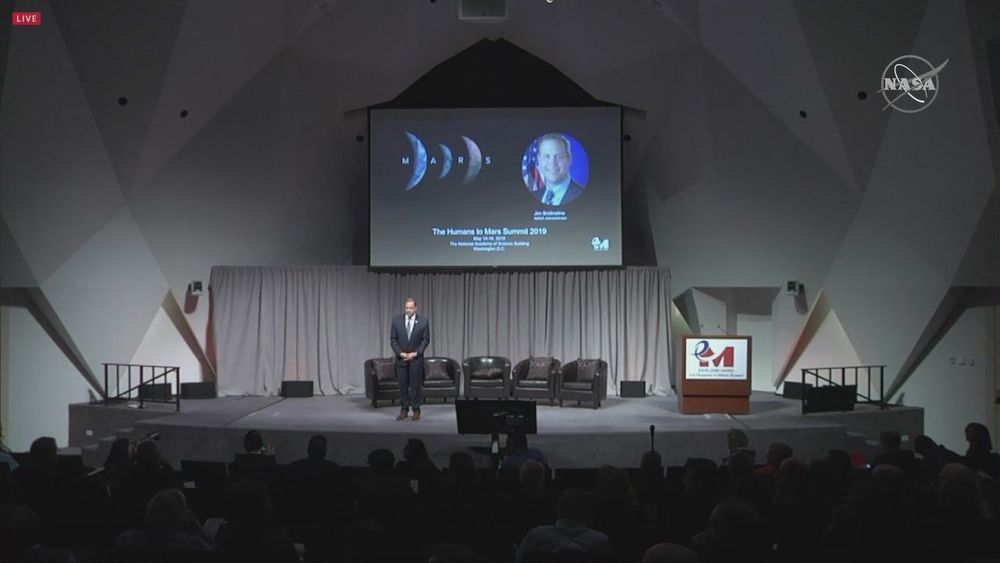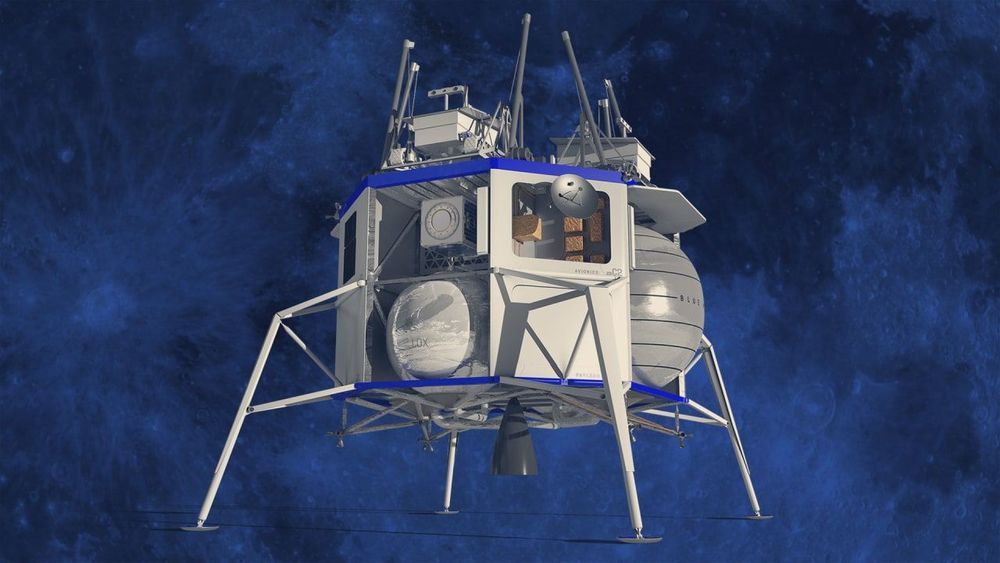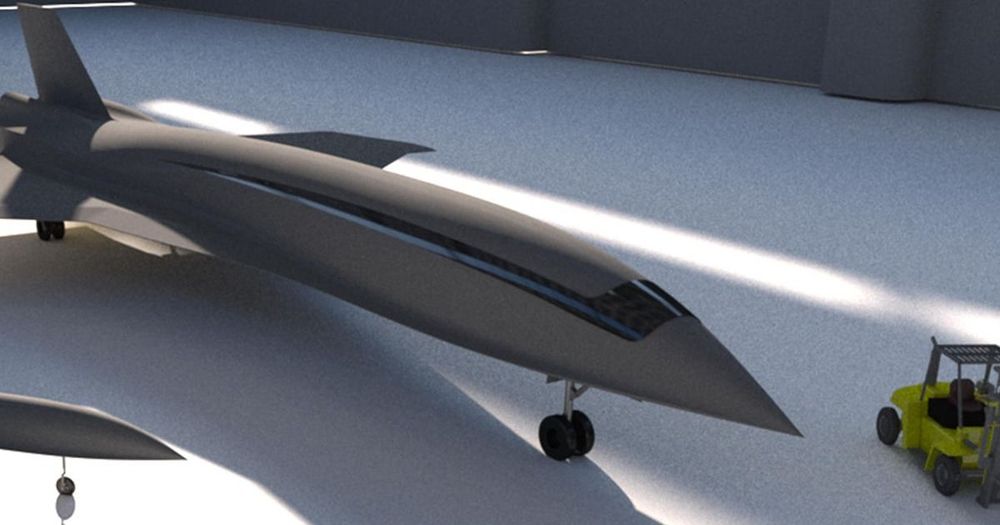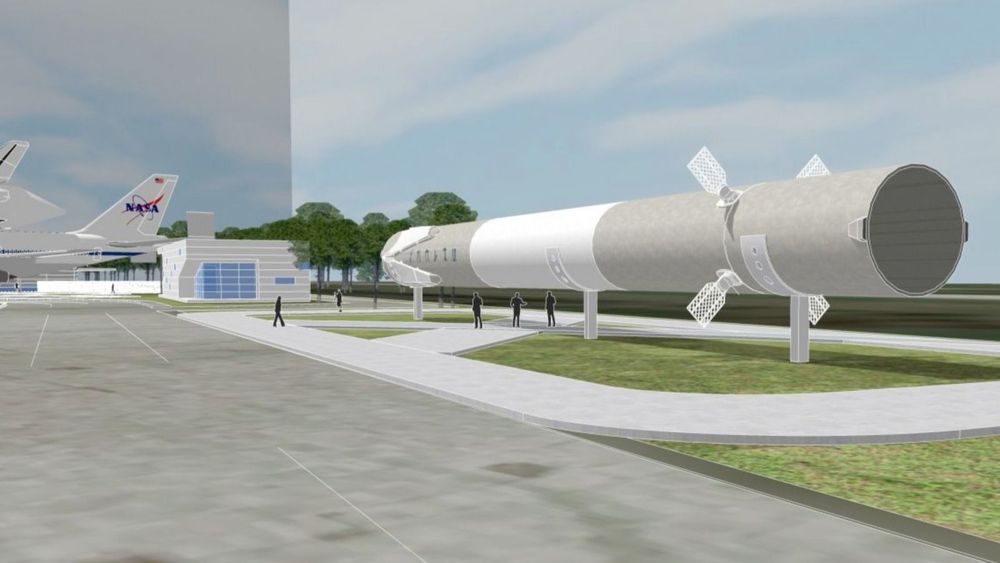Archive for the ‘space travel’ category: Page 363
May 13, 2019
Jeff Bezos wants to save Earth by moving industry to space
Posted by Pat Maechler in category: space travel
The billionaire owner of Blue Origin outlines plans for mining, manufacturing, and colonies in space.
[Photo: Flickr user NASA Goddard Space Flight CenterFollow;courtesy of BlueOrigin].
May 13, 2019
Blazing Supersonic Plane Could Zoom From NY to Paris in 90 Min
Posted by Quinn Sena in categories: drones, Elon Musk, robotics/AI, space travel
Planes, Drones, and AI Machines
But going from Mach 2 to Mach 5 is not an easy undertaking. Hermeus is hoping to pull from existing technologies to make its insanely fast passenger plane a reality, including titanium materials and cutting edge rocketry.
It’s impossible to tell what the future of air travel will look like. If supersonic airplanes aren’t it, SpaceX founder Elon Musk has pushed for the idea that we’ll go between Earthly destinations in rockets that can technically take us to Mars.
Continue reading “Blazing Supersonic Plane Could Zoom From NY to Paris in 90 Min” »
May 12, 2019
Blue Origin kicks off kids’ space club with offer to launch postcards
Posted by Genevieve Klien in categories: futurism, space travel
Jeff Bezos is adding another title to his credit: space postmaster.
The Amazon CEO and founder of Blue Origin on Thursday (May 9) announced that his private spaceflight company has created a new program to inspire today’s youth to think about their future in space. To get them started, Bezos plans to launch and return 10,000 stamped postcards with students’ visions for humanity beyond Earth.
“One of the things we have to do is inspire the future generations,” said Bezos during a press event where he also unveiled his own far-reaching vision for space settlement, including Blue Origin’s Blue Moon lunar lander. “So today, I am announcing that Blue Origin is founding the Club for the Future, whose mission is to inspire young people to build the future of life in space.”
Continue reading “Blue Origin kicks off kids’ space club with offer to launch postcards” »
May 12, 2019
Watch Jeff Bezos Unveil the Blue Moon Lander
Posted by Genevieve Klien in category: space travel
Amazon’s Jeff Bezos steps up the space race. His private space company, Blue Origin, says the Blue Moon lander will be able to carry a small rover to the moon, and hopefully astronauts. (Source: Bloomberg)
-
-
 01:20.
01:20.
-
May 12, 2019
Here’s Everything Jeff Bezos Said to Convince Humanity That Space Colonies Are the Future
Posted by Derick Lee in categories: Elon Musk, space travel
Amazon founder Jeff Bezos, the wealthiest man on the planet, gave an hour-long presentation yesterday about his plans for humanity’s future living on the moon and in space colonies. It was a bit like watching a monologue from a sci-fi movie in a lot of ways. And now you can finally view the entire presentation online for yourself.
Fellow billionaire Elon Musk generally makes a point of offering a live video stream whenever he announces something important and futuristic like this. But Bezos and his space company Blue Origin didn’t post a video of yesterday’s event until the middle of the night. It’s a fascinating talk, but maybe livestream the thing next time, Jeff? This is the future we’re talking about, after all.

Hear me out, I am not saying this will be the case, but could the potential to build and colonize mars become the world only for the rich? I am sure if you ask Elon Musk or SpaceX in 2019 if that is the case, they would say that is not true. But how are people supposed to travel the s.
May 11, 2019
You’ll Soon Be Able to See a Twice-Flown SpaceX Falcon 9 Up-Close in Houston
Posted by Genevieve Klien in category: space travel
An upcoming exhibit at Space Center Houston will feature the core section of the Falcon 9 rocket used in two NASA missions.
Space Center Houston, the museum of NASA’s Johnson Space Center, announced the new exhibit on Thursday, CollectSpace reports. The twice-flown SpaceX rocket core will go on display later this summer.
May 11, 2019
From SpaceX to Vector: Jim Cantrell and the Private Space Industry
Posted by Klaus Baldauf in category: space travel
Jim Cantrell explores the vast opportunities in space with us, but one thing he makes clear is that no one would benefit from a war in space.
May 11, 2019
Club for the Future powered by Blue Origin
Posted by Klaus Baldauf in categories: futurism, space travel
Club for the Future is for you, the dreamers of tomorrow.
Club members’ ideas combined with a foundation of affordable, frequent, and reliable access to space, will help spark a future without limits. Dream. Experiment. Build. As we grow, look out for new activities, content, and opportunities to access space.
















